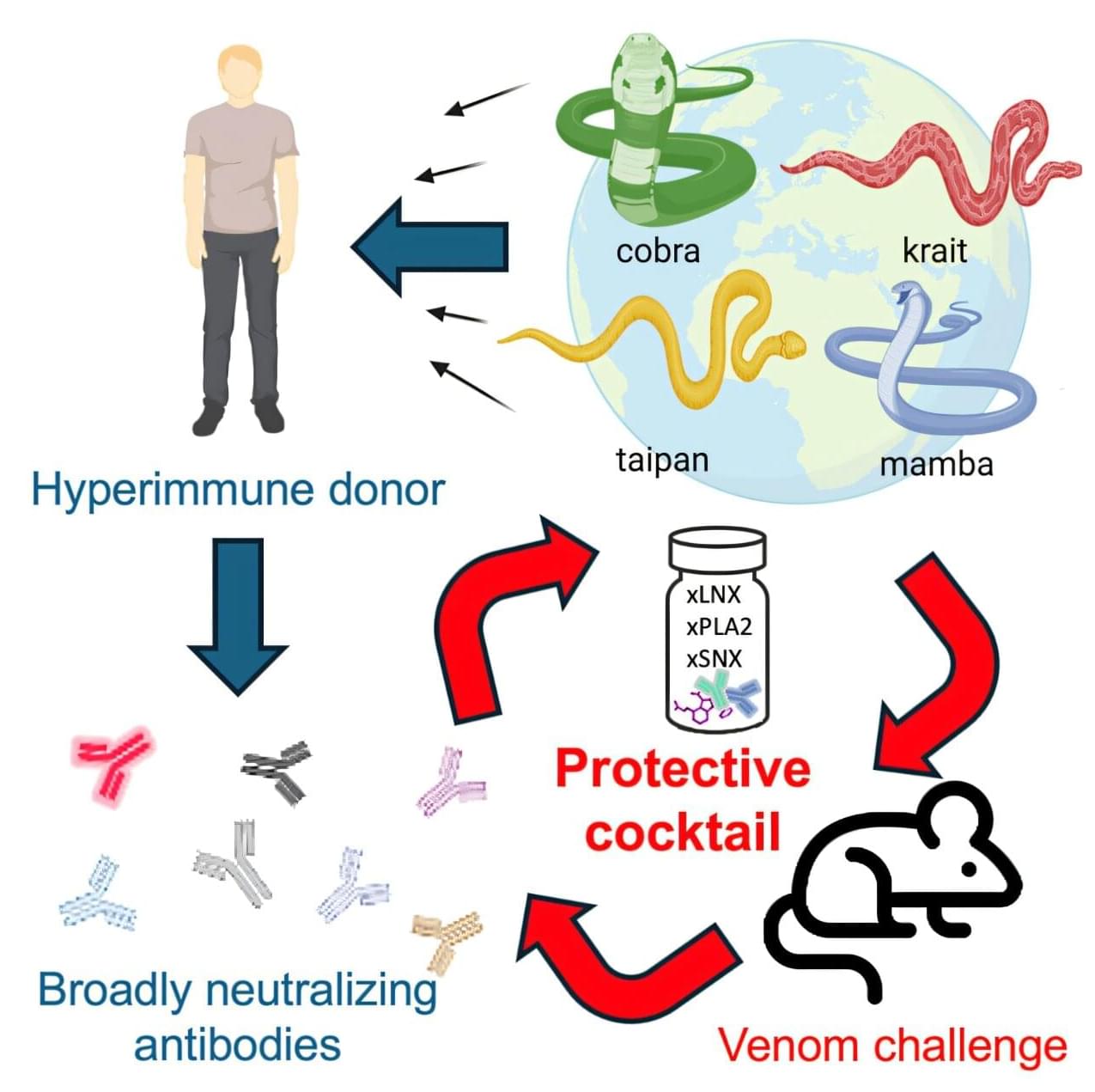By using antibodies from a human donor with a self-induced hyper-immunity to snake venom, scientists have developed the most broadly effective antivenom to date, which is protective against the likes of the black mamba, king cobra, and tiger snakes in mouse trials. Described in the journal Cell, the antivenom combines protective antibodies and a small molecule inhibitor and opens a path toward a universal antiserum.
How we make antivenom has not changed much over the past century. Typically, it involves immunizing horses or sheep with venom from a single snake species and collecting the antibodies produced. While effective, this process could result in adverse reactions to the non-human antibodies, and treatments tend to be species and region-specific.
While exploring ways to improve this process, scientists stumbled upon someone hyper-immune to the effects of snake neurotoxins. “The donor, for a period of nearly 18 years, had undertaken hundreds of bites and self-immunizations with escalating doses from 16 species of very lethal snakes that would normally kill a horse,” says first author Jacob Glanville, CEO of Centivax, Inc.
